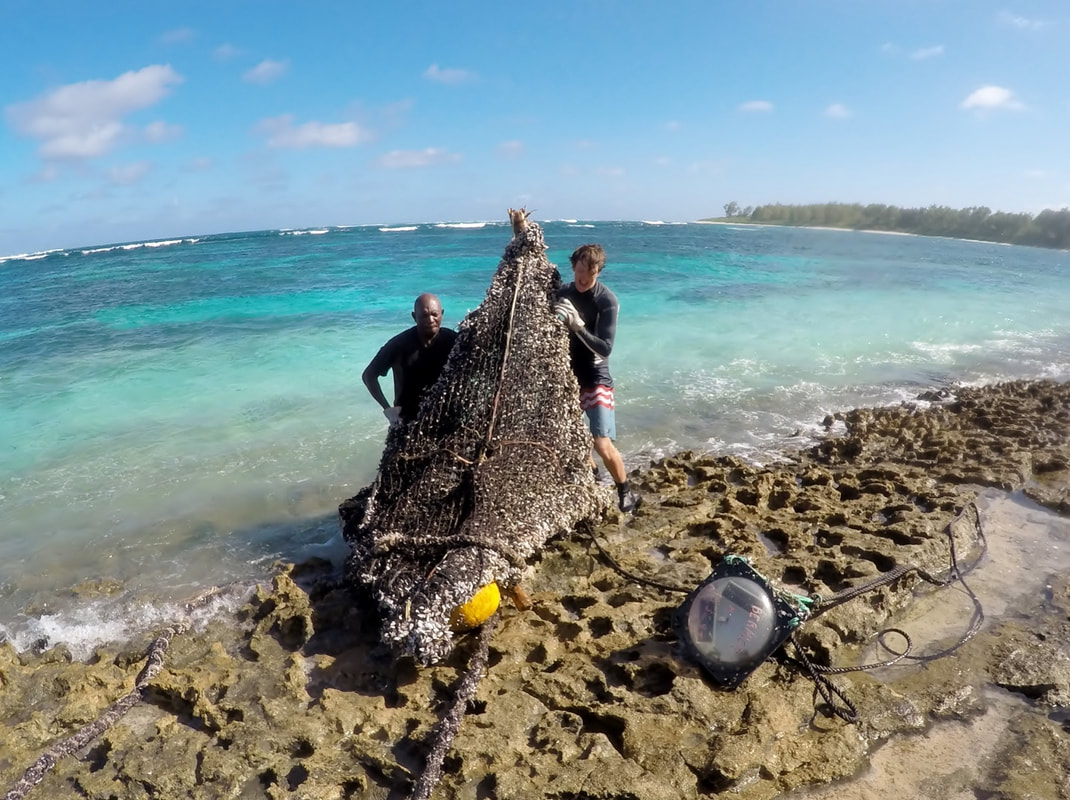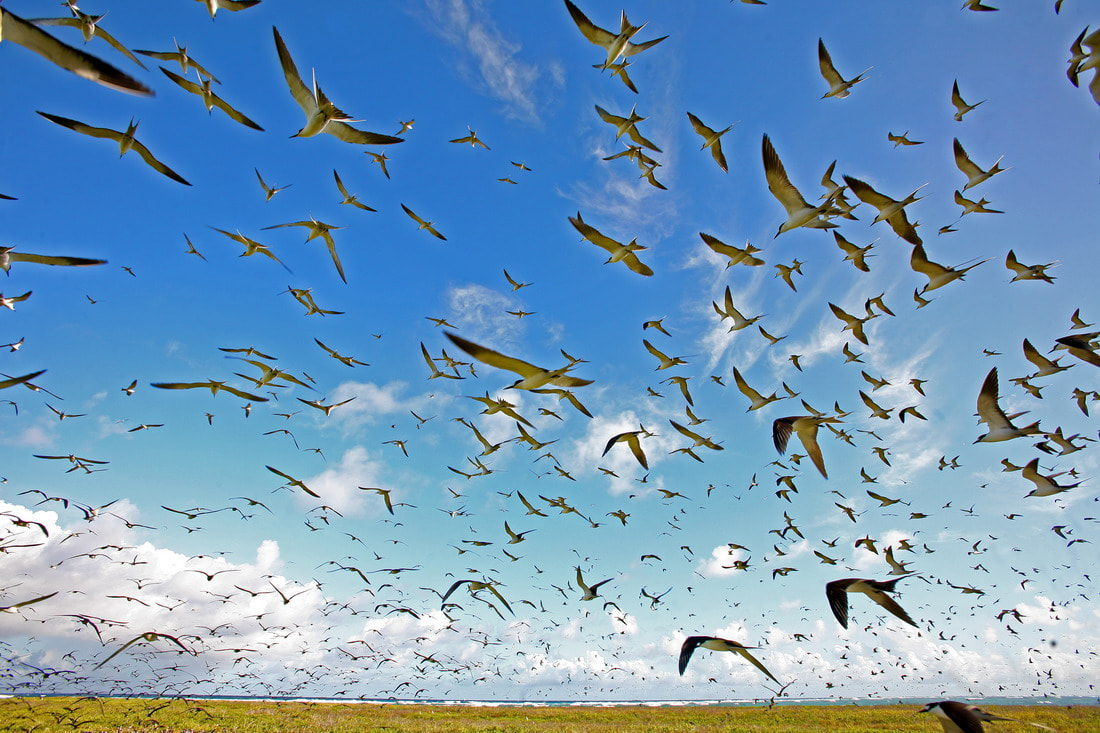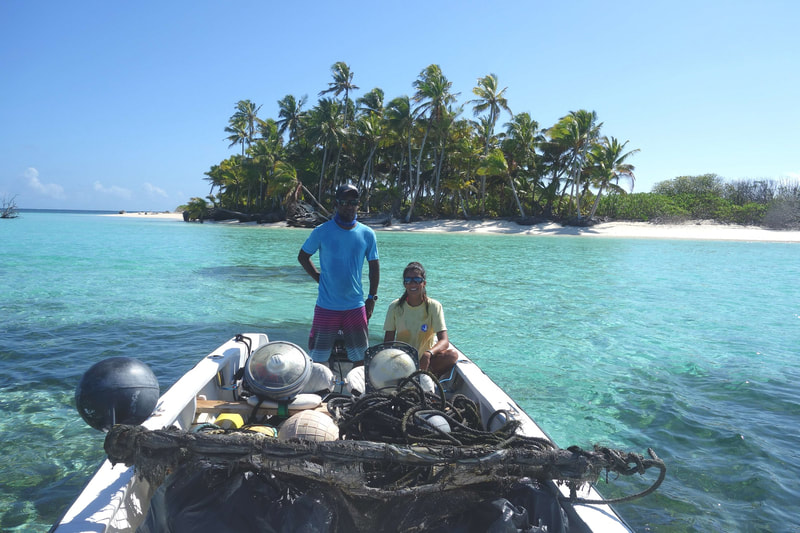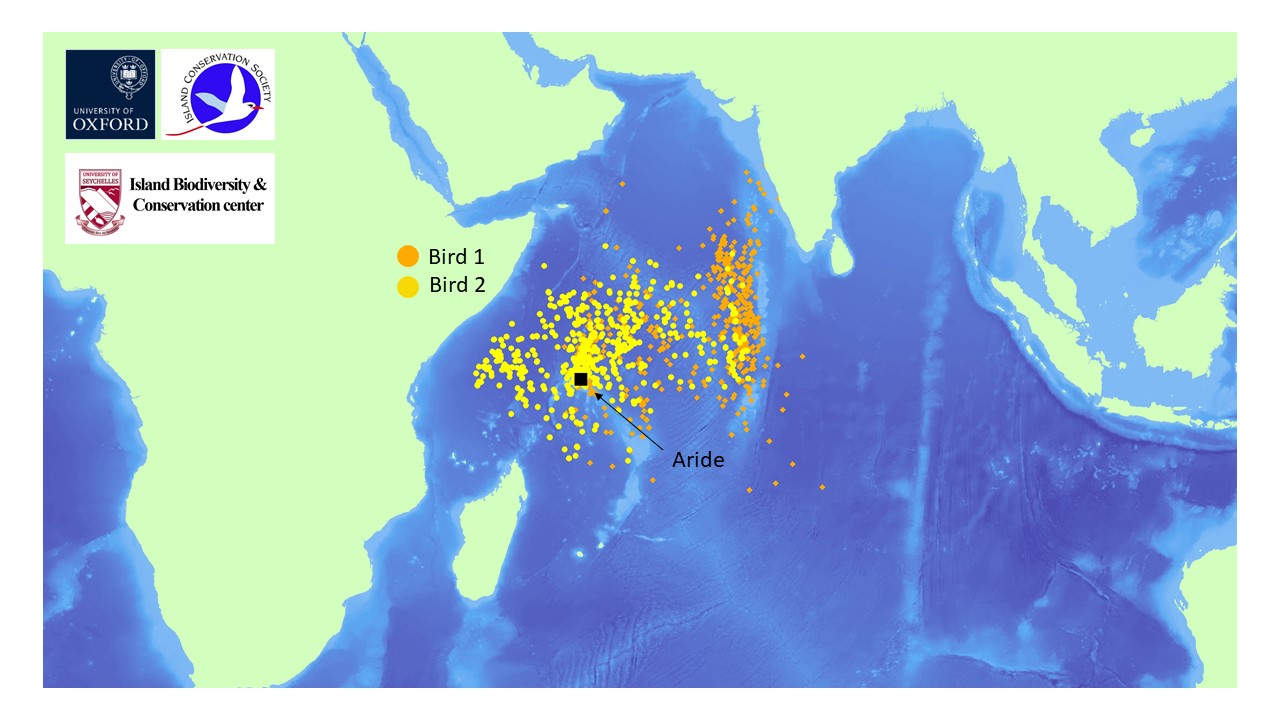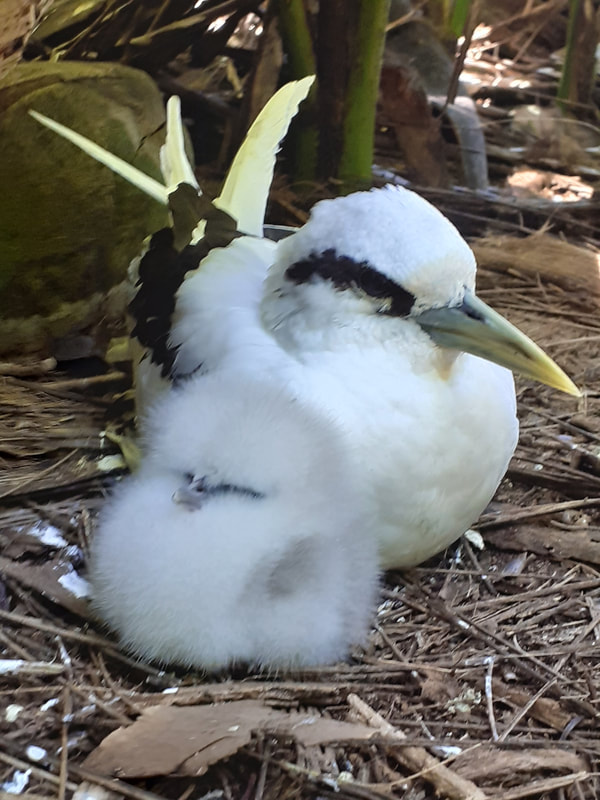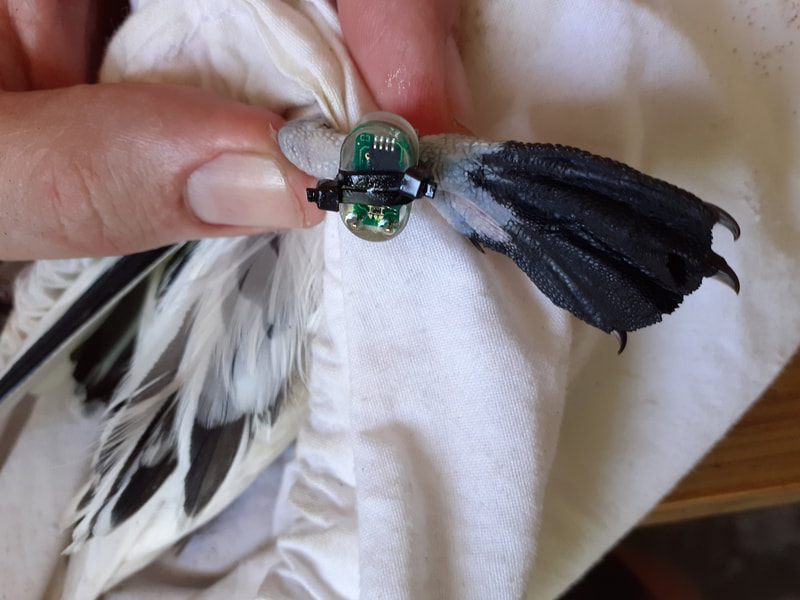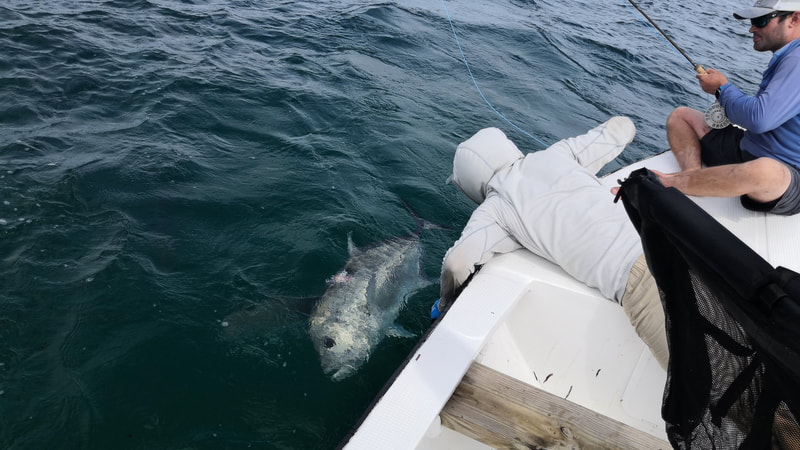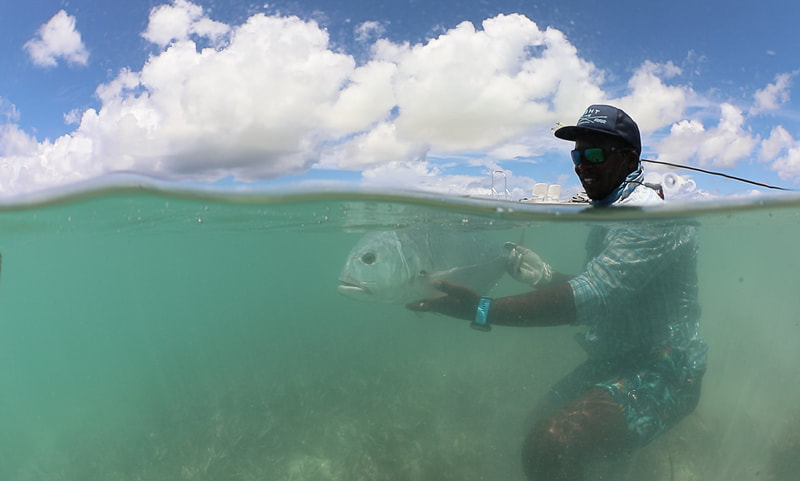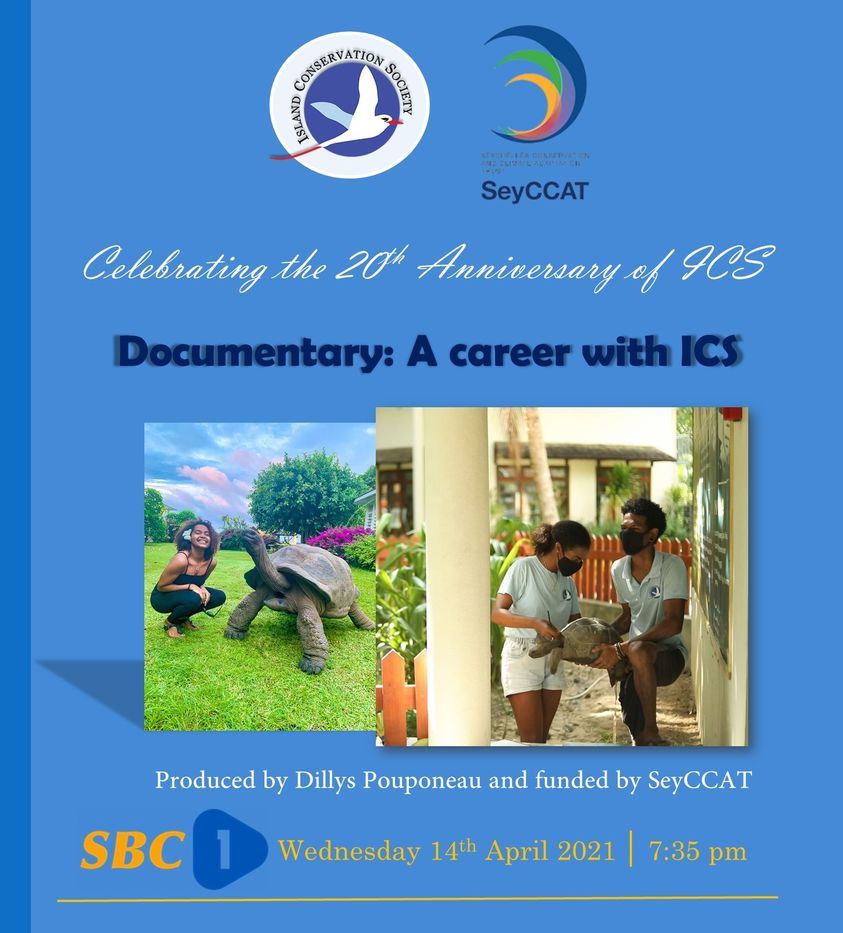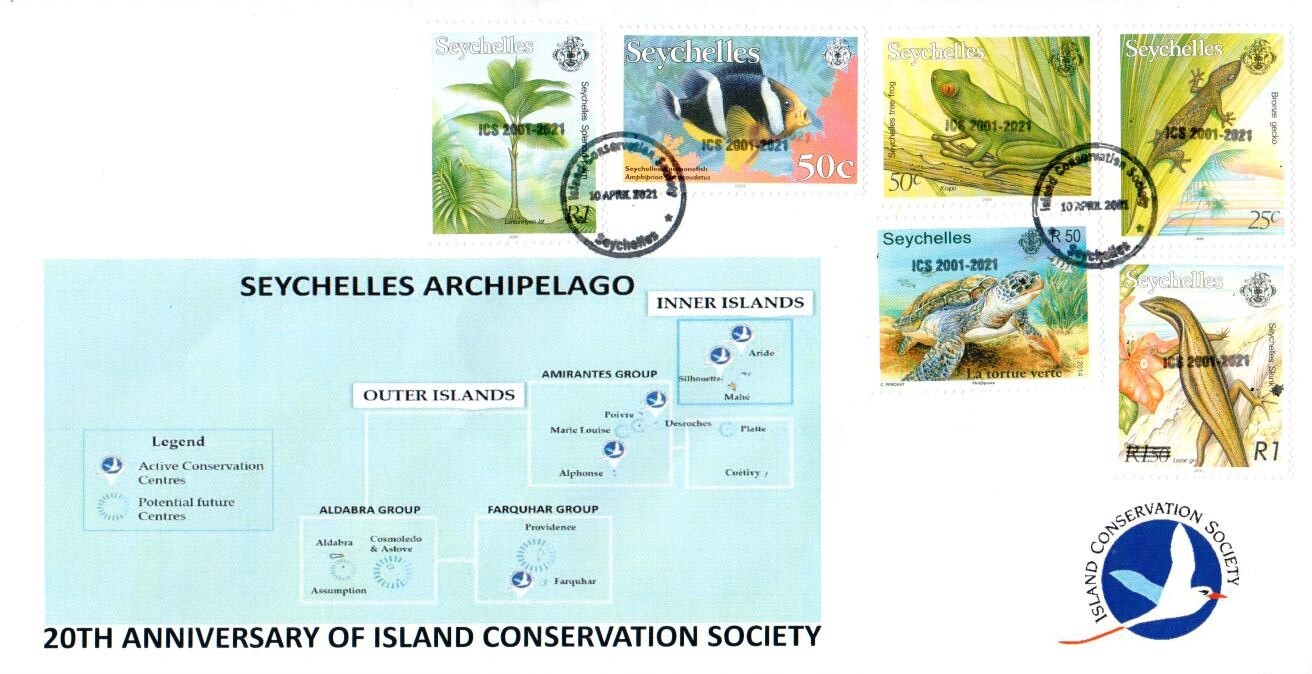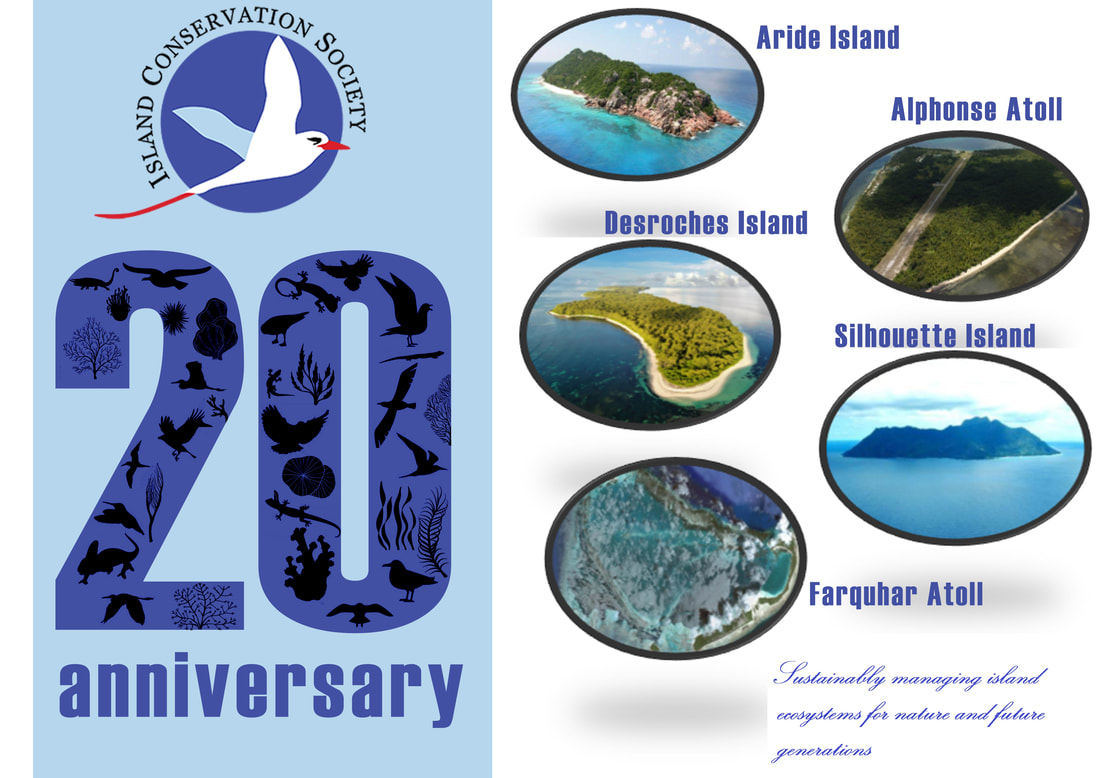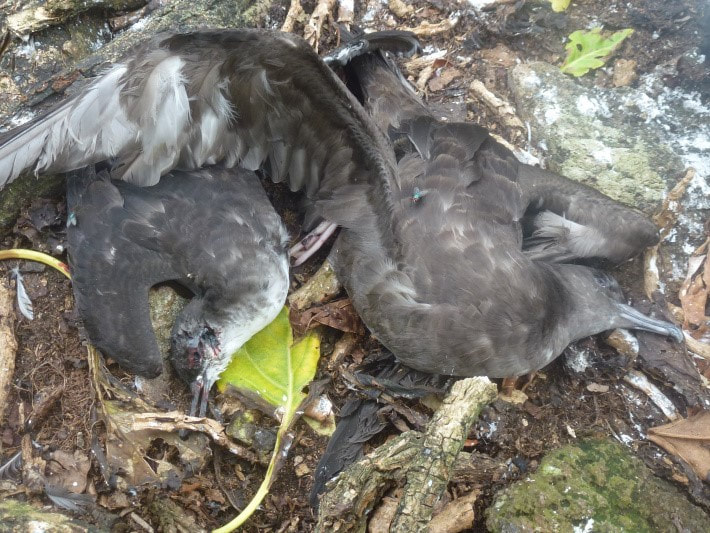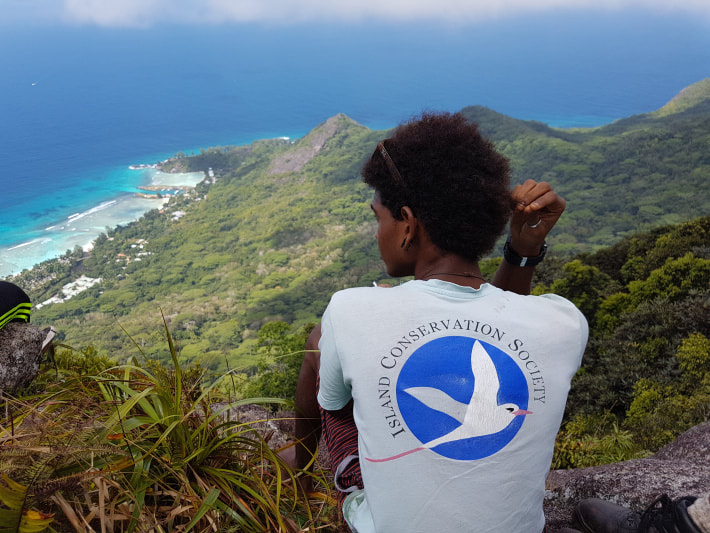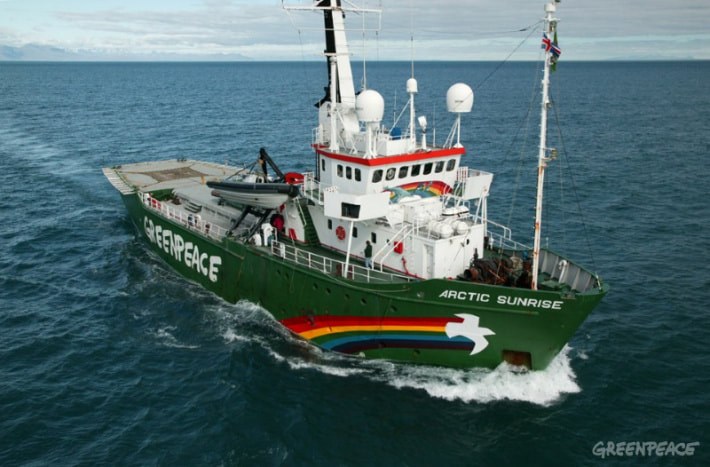|
Many thousands of FADs are dumped in the Indian Ocean each year and in most cases are not recovered. This has increased the productivity of the fishing fleet but has brought significant environmental costs. The average FAD-caught fish is smaller and the catch includes a substantial number of juveniles. There is a relatively large bycatch including several species of pelagic sharks. The Indian Ocean FAD-based purse seine fishery has the highest percentage of bycatch in the world, 25%, compared to a global average of 16% (Daghorn et al 2013). Turtles also become entangled by ropes and netting beneath FADs and drown. FADs inflict considerable damage when they wash ashore at coral reefs. ICS will actively engage with the relevant parties to carry out a review and revision of (i) the existing FAD MANAGEMENT PLAN and (ii) the new FAD WATCH Agreement during this calendar year. Discussions should focus around:
It is proposed that ICS should commence and lead discussions with the relevant parties with a view to achieving a comprehensive revision of the two agreements mentioned. It is intended that these discussions should start in July this year with a view to finalisation and execution in 2022. The full paper can be downloaded here
0 Comments
THE INDIAN OCEAN IS IN CRISIS: ICS issue position papers on FADs & Sooty Tern egg collection3/7/2021 The Indian Ocean is in crisis. Coral reefs are dying because of coral bleaching and damage from human activities. Some seabird populations appear to be in a state of massive decline. Plastics are being dumped at alarming levels. The widespread use of Fish Aggregation Devices has increased fishing yields at considerable environmental cost. Coastal erosion is impacting every island of Seychelles, threatening the very existence of some.
ICS Trustees met on 28 June and unanimously agreed to issue two position papers, ringing alarm bells on two of the major issues we are facing: The cropping of Sooty Tern eggs in Seychelles ICS has already given full support to the 2021 National Sooty Tern Census. Initial results are alarming. ICS calls for future annual population assessments to better understand long-term population trends. ICS is calling for research into changes in the marine ecosystem, renewed government support to make legislation effective and a reassessment of the sustainability of egg collection. Above all, ICS calls for a national debate on the relevance and justification for Sooty tern egg cropping in Seychelles in the 21st century. Fish Aggregation Devices (FADs) Many thousands of FADs are dumped in the Indian Ocean each year and in most cases are not recovered. This has increased the productivity of the fishing fleet but has brought significant environmental costs. The average FAD-caught fish is smaller and the catch includes a substantial number of juveniles. The Indian Ocean FAD-based purse seine fishery has the highest percentage of bycatch in the world. Turtles also become entangled by ropes and netting beneath FADs and drown. FADs inflict considerable damage when they wash ashore at coral reefs. ICS calls for acknowledgment and enforcement of the principle that that the polluter must pay for the environment damage and the subsequent clean-up. Serious on-going research into minimizing the environmental impact of FADs is required. ICS calls for discussions with the relevant parties with a view to achieving a comprehensive revision of agreements on FADs. More news will follow soon. As part of a research project implemented by Dr Annette FAYET (University of Oxford) and ICS co-founder Dr Gérard ROCAMORA (Island Biodiversity and Conservation centre of the University of Seychelles), in collaboration with the ICS-Aride Island Nature Reserve team, 30 tracking loggers called geolocators (GLS) were deployed in February-March 2020 on as many White-tailed tropicbirds nesting on Aride. Each GLS (weighing little more than 1g) was attached to a metal ring identifying each tropicbird individually. These GLSs have been recording the bird's movements at sea first during their fishing trips to feed themselves and their chicks on Aride, and later after these seabirds left Aride (after their chick fledged or because their nesting attempt failed) for a long migration. GLS measure every day the time at which daylight starts and at which night falls, something that is unique to any particular location around the planet, which allows an estimate of geographic coordinates (Latitude and Longitude). Although these measurements are not precise (up to 180km of uncertainty) they can provide an approximate position of these seabirds and an insight of their movements. After 8 to 10 months spent at sea, six of these birds have returned to Aride to breed, almost all at the same nests. Conservation rangers Ricky ADELINE, Vanessa DUFRENNE and Annie GENDRON have been monitoring the nests every week since last December, assisting Dr ROCAMORA in retrieving the devices. These first retrievals allow us to visualise the amazing movements and huge distances covered by Aride tropicbirds during their non-breeding season, one of them having reached the Chagos, the Maldives, and up to the India's coast, whilst another remained within a radius of 2,000km around Aride. The figure below shows how the movements of two single tropicbirds actually cover much of the North-West Indian Ocean. This illustrates how each of these birds is vulnerable to any negative factors occurring at wide scales across the ocean, such as changes in food supply due to global warming, El Nino events, reduction in prey due to overfishing or pollution from chemicals and plastics. We look forward to retrieving the remaining devices and discovering more of these spectacular movements of the White-tailed tropicbirds that breed on Aride Island.
Text and photos by Gerard Rocamora Over the last 15 months the ICS Alphonse team has been working with the @Alphonse Fishing Company on 'accelerometer trials' on the Giant Trevally, a species which is resident within the lagoon. The tests assess reflex impairment and post-release condition to uncover the physiological and behavioural effects of catch-and-release. Last month the desired sample size of 40 was achieved. We would like to extend our gratitude to the many fishing guides who assisted ICS, in particular Trevor Sithole and Warren Graham for their enthusiasm. The data will be analysed by our partners at @UniMassachusetts and the results will help to further define the Fly-fishing Code-of-Conduct. Collaboration has been key to this @SeyCCAT funded project, and we are excited to continue working with our partners towards scientifically supported sustainable practices.
One of our the conservation staff of ICS, Dillys Pouponeau, has produced a short documentary on Silhouette. The Seychelles Broadcasting Cooperation will broadcast the short documentary on of its TV station, SBC 1.
ICS values the diverse pool of talents present across the islands and will continue to encourage creativity and innovation in the workplace. Well done, Dillys! Our gratitude goes to to SeyCCAT, SBC and all who has participated in the documentary. ICS celebrates its 20th anniversary today, 10th April 2021. What started out as a small NGO by only four trustees is now an established conservation organisation striving to sustainably manage island ecosystems. To commemorate this auspicious occasion, we have organised a series of activities involving the media and staff across the islands. Our founders, staff and partners have prepared short messages for this occasion, these can be viewed from our Facebook page and Instagram account.
We are pleased with what we have achieved over the past two decades, thanks to the dedication of the ICS founders, Trustees, staff and partners. We look forward to strenghtening partnerships so that we can collectively tackle various issues that continue to impact our fragile island ecosystems. Conservation should be part of our daily lives so that we can continue to promote and protect the earth’s resources for current and future generations. ICS reiterates its commitment to promote and protect the fragile island ecosystems that belong to every Seychellois with the support of organisations and the wider community. Island Conservation Society staff at Aride Island Nature Reserve have long fought a lonely battle against poachers, who come to the island trampling through sensitive breeding grounds to take nesting seabirds and eggs. Meanwhile, whereas the marine ecosystem is protected in theory to a distance of 1 kilometre, in practice this means nothing to poachers who raid reefs and damage corals around the island. Poachers will even sometimes kill birds senselessy and leave the corpses on the nature trail, perhaps as a message to ICS staff that they believe they are immune from prosecution.
Perhaps this is all about to change dramatically. ICS lacks the manpower and a vessel to combat poaching. Seychelles Coastguard does not. The two organisations have now teamed up to provide Aride island with the protection it deserves. Read more at these resources: Seychelles Nation press release Seychelles Nation article Seychelles News Agency ICS Ranger, Saïd Harryba, took part in a short video for the British Broadcasting Corporation (BBC) StoryWorks Programme in partnership with the Seychelles Tourism Board. The StoryWorks media programme promotes stories on various themes to inspire curious minds across the globe, especially during the current Covid-19 pandemic. Said joined ICS as a Conservation Ranger in 2016 based at Silhouette Island Conservation Centre. He was promoted to the post of Assistant Conservation Officer in 2020. BBC StoryWorks is the content studio of BBC Global News. It works to create beautifully crafted stories that inspire people across the globe. The BBC video may be viewed at this link. The Greenpeace International vessel Arctic Sunrise has arrived at Port Victoria and will be conducting scientific research at the Saya de Malha Bank between Seychelles and Mauritius up to 30 March 2021.
The purpose of this expedition is to collect information about the biological diversity present at the Saya de Malha Bank and to contribute to knowledge of the value of such sites for conservation. This will include mapping marine diversity of the region including sharks and whales by means of environmental DNA sampling. Seagrass meadows and coral reefs will also be studied. Island Conservation Society received a grant from Greenpeace in 2015 to assist in the work commenced in 2014 to help better understand the impacts of FADs in the outer islands of Seychelles. ICS created and uploaded a video podcast on YouTube to help describe the problem at hand, which can be viewed here. Sadly, FADs continue to be a serious issue, causing damage to coral reefs throughout Seychelles. This has already been highlighted in 2021 by ICS on this blog and in articles published in Seychelles Nation and Today in Seychelles. |
Categories
All
Archives
September 2023
|

